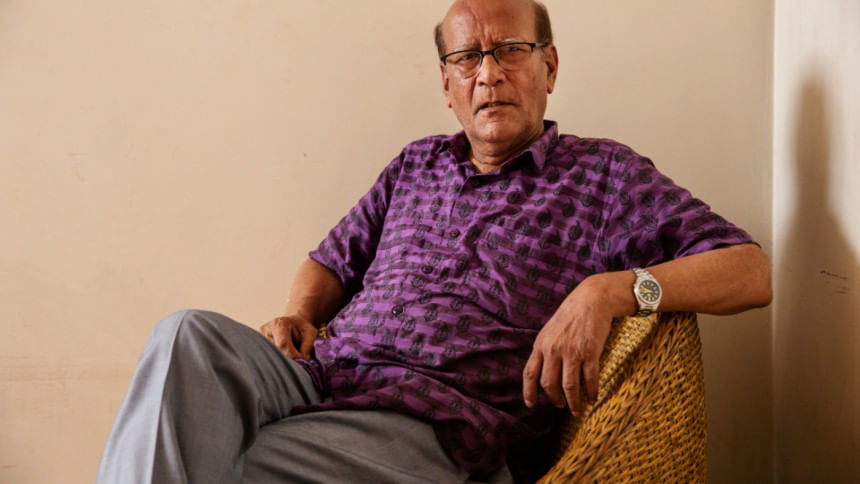MD KHURSHID ALAM

'Chumki Choleche Eka Pothe', 'Chupi Chupi Bolo Keu Jeney Jabe' and 'Jodi Bou Shajo Go' are classics that remain ever popular among the music lovers of all ages. With a career spanning over four decades and more than 400 songs tied to his legacy, the eminent singer, Md Khurshid Alam has carved a place for himself in the 'Adhunik Sangeet' scene of Bangladesh. This week, the singer opened up about his struggles, and how he reached the pinnacle of his career.
THE BOND OF MUSIC
Music was engrained in my soul through the cultural influence of my uncle, Abu Hyder Sajedur Rahman, a Rabindra Sangeet singer. However, he never professionally pursued the career of a musician as my grandfather was not very supportive of it. But, he was a free spirit, and his passion for culture and the arts could not be suppressed. Besides, he used to teach the art of dance and music to many others. The ace dance artist, Laila Hasan was one of his students. He was very fond of me, and we shared a unique bond. He was the one who introduced me to the harmonious world of music. In 1966, I auditioned for Bangladesh Betar. The audition was led by legendary composer, Abdul Ahad, along with Samar Das and Ferdausi Apa. After my audition, I received constructive feedback from them. They praised my singing, but also told me that I followed the style of another artist. So, I needed to find my originality and uniqueness. Samar Das offered to train me, and after a year, my first song was aired on Bangladesh Betar.
FIRST PRIORITY
My family is my core inspiration. My uncle's teaching was the foundation of my career, and later my parents' and grandfather's encouragement helped me succeed. Even though my grandfather was against this profession, when he saw me do well he changed his mind. Even the people around me supported and motivated me.
FATEFUL CHOICE
The first obstacle in my career was in the year 1965, when Rabindra Sangeet was banned from the radio, almost overnight by Mohammad Ayub Khan. During that time, I only used to sing Rabindra Sangeet, and the ban made it difficult for me to perform on stage or on the radio. However, I evolved as an artist, and my fate made me an Adhunik Sangeet singer. I believe that if someone has a strong willpower, no matter what obstacle they face in life, they will achieve their goal.
EVENTFUL INTERLUDE
When I got the offer to sing in a movie, people were hesitant to acknowledge me as a playback artist. I remember Razzak sir was the protagonist of the film, and he invited me over to his place. I learned about his style of acting, gestures and way of talking. And when he agreed to lip sync to my song, I got really excited. I believe this was the turning point of my life.
POSITIVE THINKER
The millennials are educated, smart and they possess the quality of learning new techniques very fast. But, they do not have proper mentors who can guide them, and point out their mistakes. Nowadays, everyone is a singer and also a composer. I am not demeaning anyone, but for me, it is not necessary for everyone to be multifaceted. The value of music lies within the teachings of our Gurus, and when someone has multiple concentration areas, they lose track, and head for downfall. Music is a sacred art, and one should know the worth of it. Artists should work with humility and sincerity because arrogance will only bring negativity in life.
THE SECRET OF HAPPINESS
My happiness lies with whatever I have today. The materialistic elements of life do not make me an artist; my work speaks for my recognition. The hard work and adoration of my family, teachers, colleagues and audience helped me grow; not just as an artist, but also as a human being. I always wanted to make a name as a Rabindra Sangeet singer, but destiny brought me to Adhunik Sangeet. I never regretted this; rather I embraced it as an opportunity to shine even brighter.
Interviewed by Robiul Kamal
Transcribed by Joana Nomrata Mazumder

 For all latest news, follow The Daily Star's Google News channel.
For all latest news, follow The Daily Star's Google News channel. 



Comments